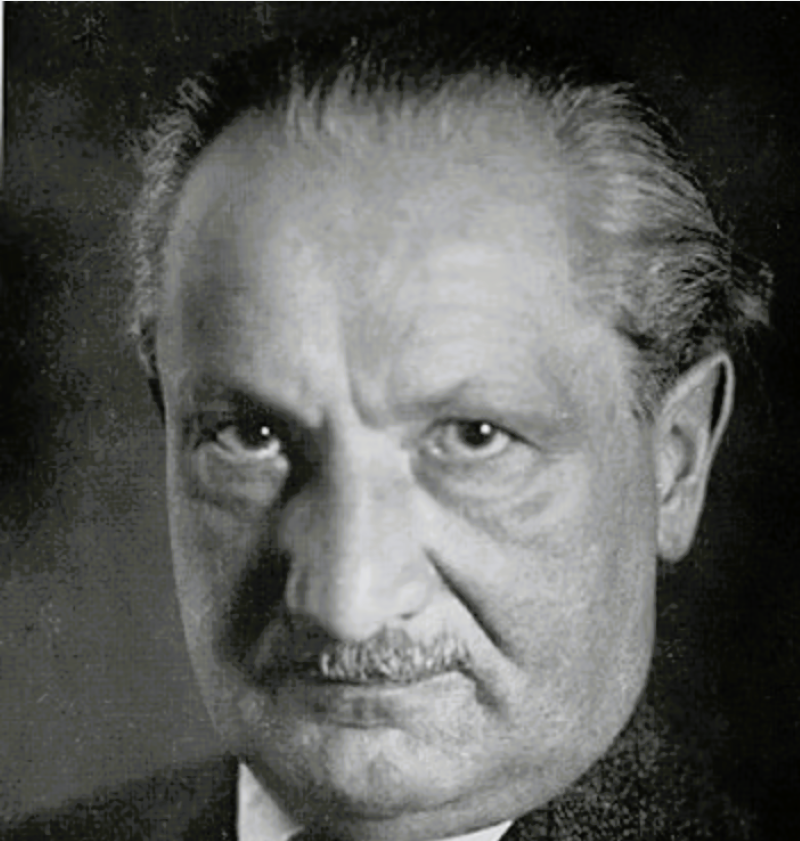
Heidegger’s famous address, often referred to as “The Rector’s Address” or “The Rectorate Address,” was delivered on May 27, 1933, at the University of Freiburg. Its full title is “The Self-Assertion of the German University” (German: “Die Selbstbehauptung der deutschen Universität”). In this speech, Martin Heidegger, who had recently been appointed Rector of the university, outlined his vision for the future of the German university in alignment with the Nazi ideology, which was then on the rise.
Here are a few key points and themes from Heidegger’s address:
Reform of the University: Heidegger called for a fundamental reform of the university, emphasizing the need for it to align with the National Socialist Revolution. He argued that the university must become a place of spiritual and cultural renewal for the German people.
The Role of the Führer: Heidegger stressed the importance of leadership and the role of the Führer. He advocated for the unity of science and scholarship under strong, decisive leadership.
Community and Volk: The address highlights the concept of the Volk (the people or nation) as a central element. Heidegger emphasized the idea of the university as a community that serves the Volk and the state.
Educational Mission: He articulated a vision of education that went beyond mere technical training or the pursuit of knowledge for its own sake. Instead, he saw education as a means of shaping individuals who are committed to the destiny of the German people and the state.
Critique of Modern Science and Technology: Heidegger criticized modern science and technology for being detached from their roots in human existence and the historical destiny of the German people. He called for a return to a more authentic way of engaging with the world.
National Socialism: The address is controversial because it explicitly aligns with National Socialist principles, reflecting Heidegger’s temporary political engagement with the Nazi regime. This aspect of the speech has been a major point of contention and debate among scholars regarding Heidegger’s philosophy and his political actions during this period.
Below is an excerpt from Martin Heidegger’s “The Self-Assertion of the German University” (Die Selbstbehauptung der Deutschen Universität), delivered on May 27, 1933. The full text is complex and substantial, but here is a representative passage:

The Self-Assertion of the German University
“The assumption of the rectorate is the commitment to the spiritual leadership of this university. The following address sets forth the paths toward the goal that we have set for ourselves.
The German university is in the midst of the most extreme distress and has been brought into such distress by the most extreme danger. The extreme danger comes to the German people now and in the future because it has become uncertain in its very itself and has no longer rooted itself in the way of its historical being. The German people must seek and rediscover its essence in the most perilous moment of its history. This self-discovery will be a finding of the way to its spirit and gaining of its world.
We find the essence of the German university by looking back to its beginning. This beginning is the Greek beginning of science, which remains the foundation of the Western university. Science must become the power that shapes our Dasein and all its relationships. But science is never a merely existent institution, never an array of tools and disciplines. Science is the questioning struggle for disclosure and preservation of the truth in all that exists. Science, as the essential happening of a people, is rooted in the Volk, that is, in the historical spiritual community of the people. Science and the German destiny must become the power of our will to essence. The will to essence is our will to the historical mission.
The much-invoked “academic freedom” will be expelled from the German university; because this “freedom” was untrue, it was merely negative. It meant a lack of concern, stance, and will to stand in the truth of the German people’s historical mission. Only the binding of science by the German people, the will to essence, will transform the university.
Three bonds will henceforth hold together the community of teachers and students and bind them to the task: the bond to the National Socialist State, the bond to the nation’s honor and destiny, and the bond to the spiritual mission of the German people.
These three bonds are one bond: the German people.”
I will let you decide for yourself if you think it fueled the hate or not. I believe it did.
Sources
https://www.facinghistory.org/resource-library/controlling-universities
https://www.annefrank.org/en/anne-frank/go-in-depth/germany-1933-democracy-dictatorship/

Donation
I am passionate about my site and I know you all like reading my blogs. I have been doing this at no cost and will continue to do so. All I ask is for a voluntary donation of $2, however if you are not in a position to do so I can fully understand, maybe next time then. Thank you. To donate click on the credit/debit card icon of the card you will use. If you want to donate more then $2 just add a higher number in the box left from the PayPal link. Many thanks.
$2.00